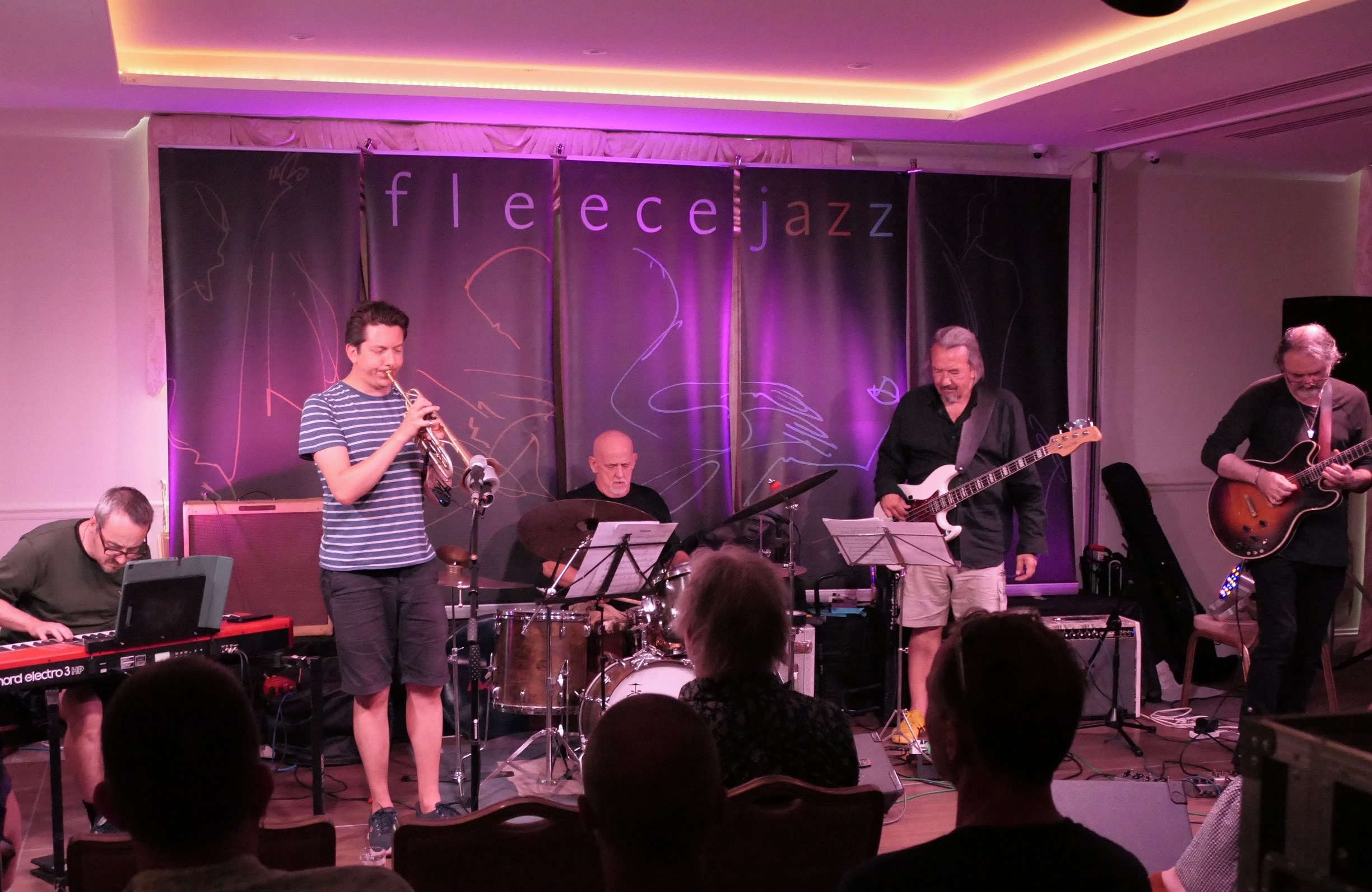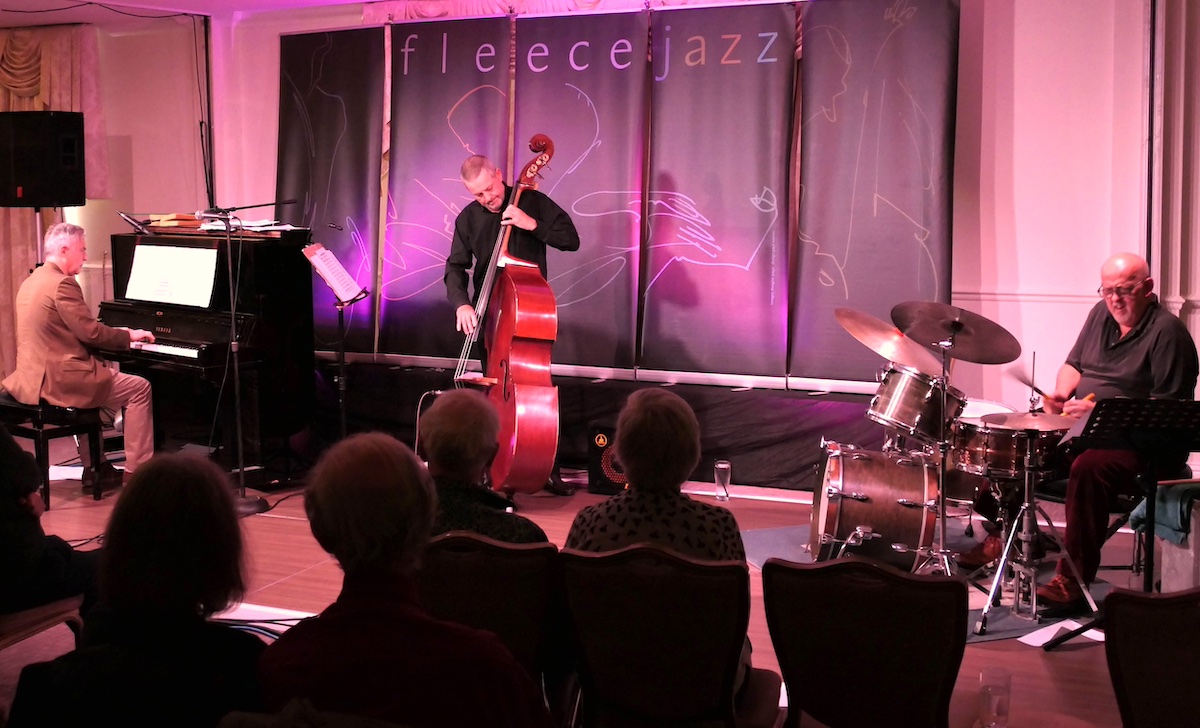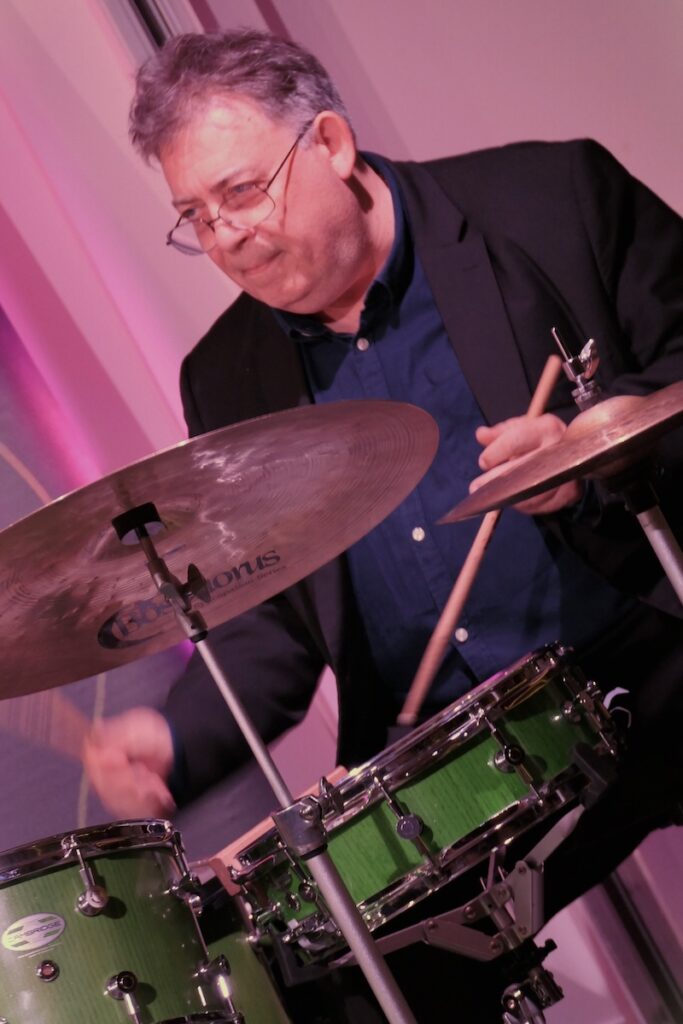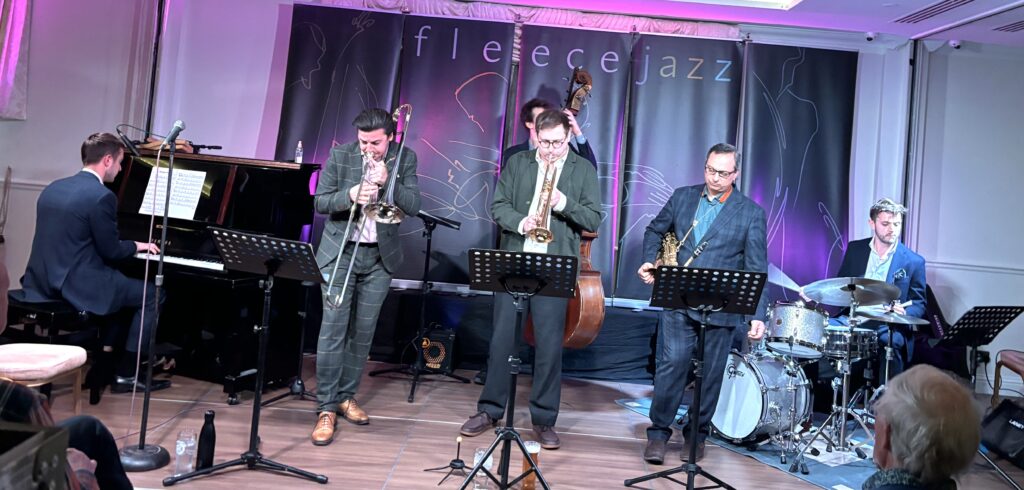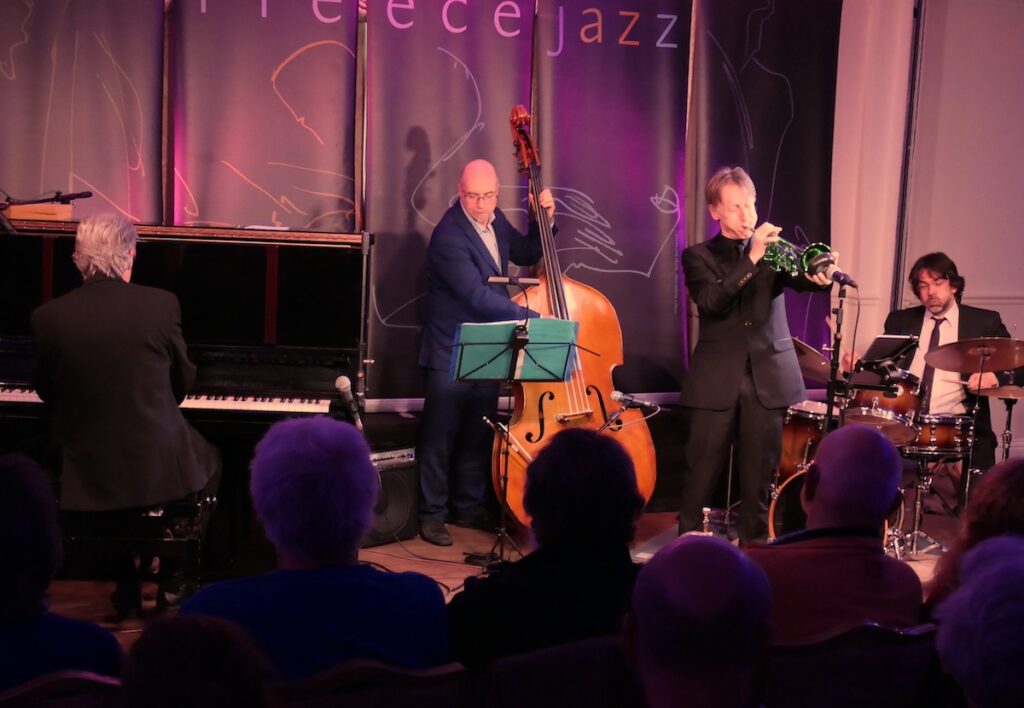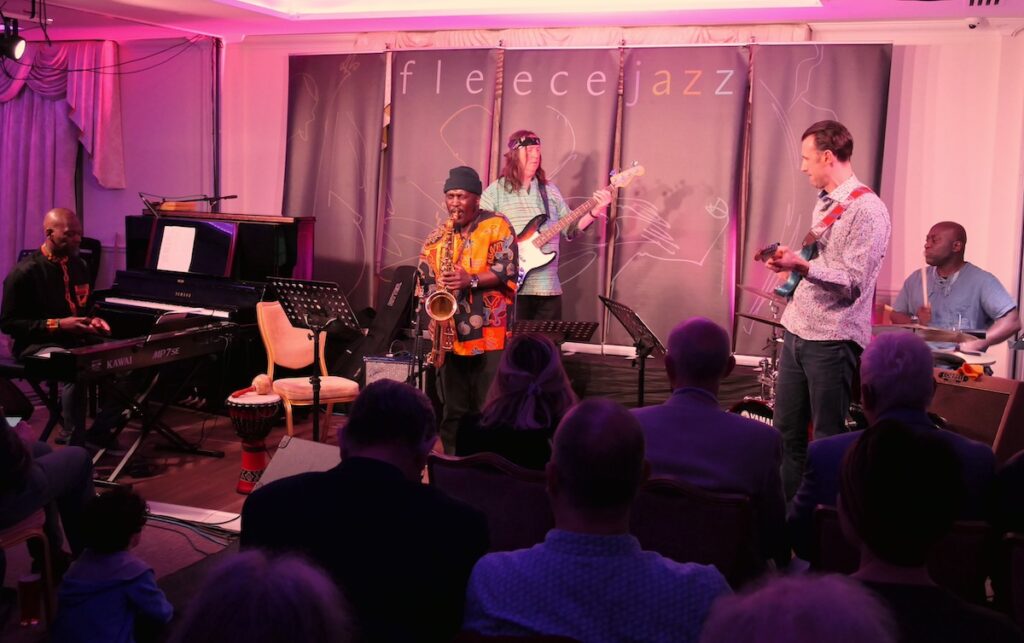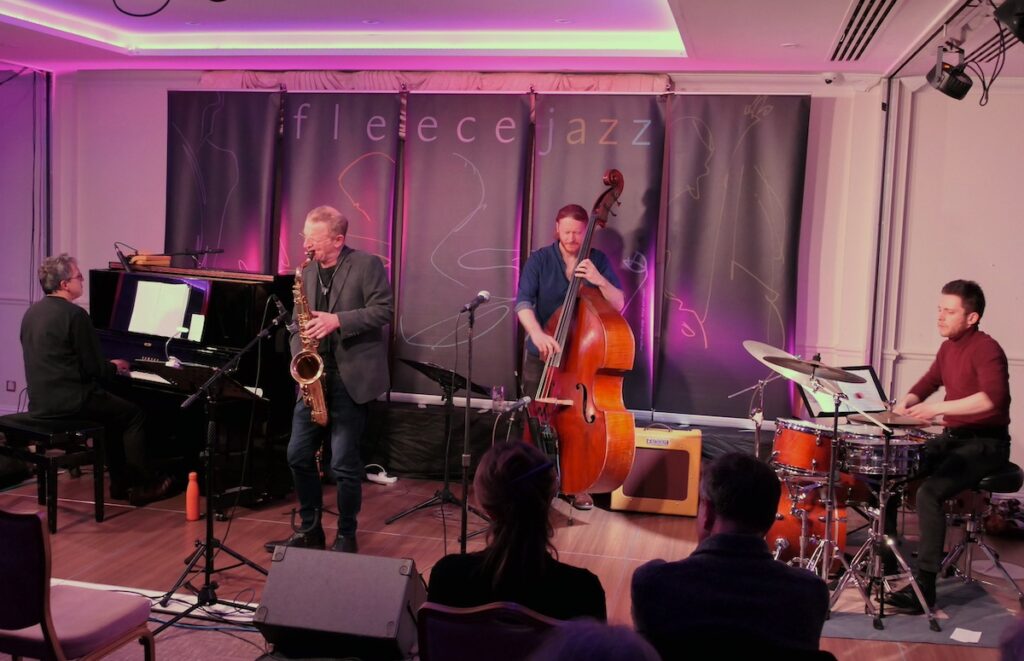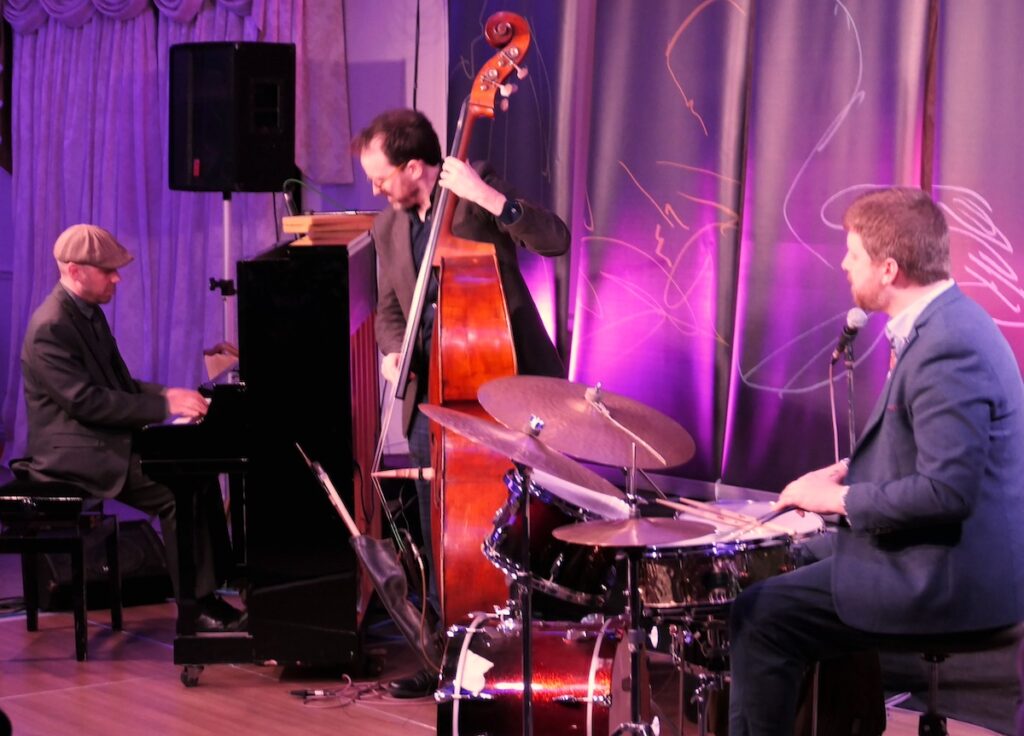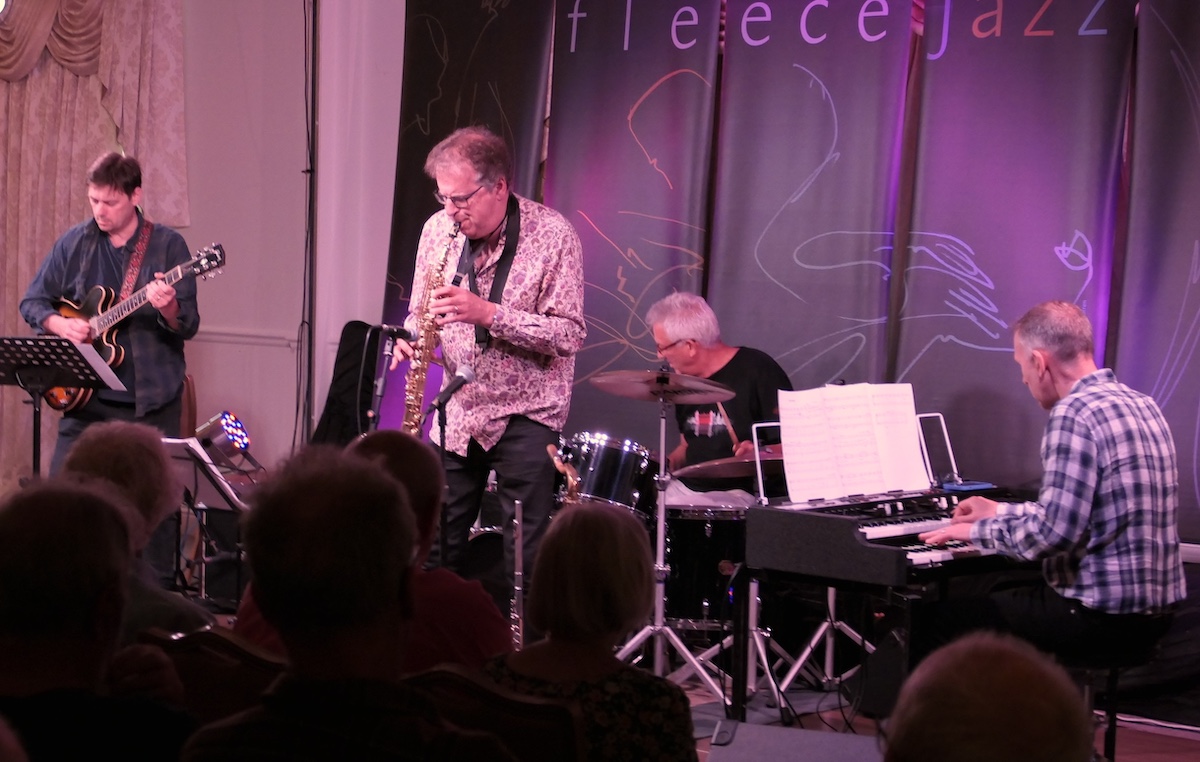
Steve said:
For all the right reasons, it is a struggle to articulate the sensation caused by Theo Travis’ Doubletalk as they returned to Fleece Jazz for the first time in just over seven years. The music was an emotional rollercoaster and, at times, completely overwhelming in its intensity. Judging from the wild applause, as well as the whoops and the cries of delight from our highly appreciative audience after almost every number, I was far from alone in feeling this way.
The gospel-tinged organ sound of Pete Whittaker that introduced the first number, ‘Ascending’, soon opens up for Theo Travis to weave his magic on soprano sax with the central, haunting melody followed by the first of many stunning and enrapturing guitar solos from Mike Outram. Throughout, the driving beat from Nic France’s drums sets the pulse racing and the sheer joy on his face as he looks to his fellow musicians reflects how many of us feel and reminds us of how patently aware the band are of each other’s musical thoughts. The pace doesn’t let up with ‘Fire Mountain’, inspired by a volcanic national park on the Canary Islands. The tempo is ramped up even further as organ and drums set the rhythm with guitar mirroring the runs on tenor sax with excoriating energy. Fittingly, the band seemed truly on fire! The pace then eases for the lovely ballad, ‘Shore Thing’, which featured a memorable solo from Mike’s guitar. Somewhat of a departure for the band, but completely in tune with Theo’s influences, is Pharoah Sanders’ ‘The Creator Has A Master Plan’ with Theo’s flute-playing featuring for the first time this evening. Sanders’ tune was a kind of sequel to his mentor John Coltrane’s legendary 1964 recording ‘A Love Supreme’ and has the same spiritual feeling, which comes across superbly from the quartet before leading seamlessly into Floating Points’ ‘Peroration Six’. The first set concludes with the title track of the quartet’s second album, ‘Transgression’, another longform piece of progressive music in the jazz idiom, a heady mix that ticks all the boxes – jazz, rock and prog. As with all the numbers played this evening, there is a rigorous musicality beneath the sound and fury.
The second set kicks off with a piece by The Beatles’ record producer, George Martin, made famous by English progressive rock band Van der Graaf Generator, ‘Theme One’. The piece develops into a catchy anthem concluding with Outram sparring with Travis. One of Theo’s older numbers, ‘Lulworth Night’, features an inspiring solo from Whittaker who elsewhere largely binds the sound of the whole band with a sublety that gives free rein to the more ecstatic contributions of Outram and Travis. ‘Freedom Coda’ is a reworking of ‘Freedom’ and ‘Song for Samuel’ is a joyous, vivacious tribute to Theo’s son. Another prog-rock-jazz epic, ‘A Place In The Queue’ once again features Pete Whittaker resplendent on keys as he mixes Larry Young-style modal jazz into the overall sound and does so once again on the much demanded encore, ‘The Relegation of Pluto’, fittingly introduced with otherworldly sounds from the organ which crystallised into a funky, swampy sound, before the sax, guitar and drums resumed.
We want them back soon.
Dave said:
I loved this show for all the reasons that Steve recorded above. For techies, I can say that it was great fun to run the sound desk for this one. The prime job was to keep Theo in front when he was soloing. His tenor came to me directly from a mic. The flute and soprano used his mic, which was connected to a stomp box connected to me. These two instruments needed different volume and reverb changes, which were also dependent on the volume of the other four. That kept me hopping. The nice thing was that the technology was used with delicacy and relevance. Nice.
For me, the favourite bit of the gig was Mike and Theo trading 4’s, and them all trading with Nic. “Polyrhythms Are Us”.I
In three weeks time, we have the return of the wonderful Norwegian piano trio, the Oddgeir Berg Trio, with Audun Ramo on bass and Lars Berntsen on drums. We loved them when they were here last. Don’t miss them.
Take care,
Dave
SETLIST, FLEECE JAZZ 24/7/2
All compositions by Theo Travis except for 4 and 6
- Ascending
- Fire Mountain
- Shore Thing
- The Creator Has A Master Plan (Pharoah Sanders and Leon Thomas) / Peroration Six (Sam Shepherd aka Floating Points)
- Transgression
* * * * * * *
- Theme One (George Martin)
- Lulworth Night
- Freedom Coda
- Everything I Feared
- Song for Samuel
- A Place In The Queue
Encore: The Relegation of Pluto

